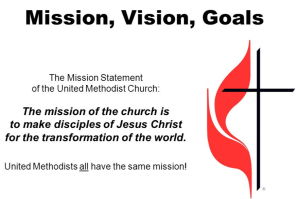Hi Broadway,
I am pondering these words spoken during our Ash Wednesday service on Wednesday:
“The journey of repentance is about “turning around” (the origin of the word) so that we might be in right relationship with God. In a sense, we are looking for love once again. When we look to God for love- not simply for the approval of others- and start with our own “turning,” we participate in the “turning around” of the world.”
I have come to believe that in order to be successful at turning around behavior, there needs to be a turning around to look at the past.
Harmful behaviors don’t happen in a vacuum. When things go wrong in life, and we behave in ways we wish we hadn’t, it can be easy to believe that we are somehow morally flawed inherently. Such thinking actually is harmful to us and others, because it's harder to act in good ways when you feel like you are bad. Instead, I suggest also considering context, to give yourself some perspective. Why weren't you at your best? Were there basic needs you were struggling to meet, for example? So much crime happens as a result of people not having the resources they need to succeed, and certain communities being deserts for even simple things like food. There are lots of reasons that relationships can be broken, and harm can happen. Most people are doing their best, but nobody is perfect. Part of reparations can mean making sure you do have your own needs met in the future, so behaving well will be easier.
I am not suggesting that people refuse to take responsibility for their actions by blaming their circumstances. However, I feel that looking at harm caused even by an individual should be looked at from a societal view that looks at causes and effects. This way, we aren't telling folks "do better" and leaving the agency only in their hands, but we are thinking about how to "turn around" the world as the reading states above, by becoming aware of the impacts of both our net of co-existence and also the systems humans have created. When a person faces impact from their actions, it is possible to be remorseful and repentant, while also softening the harshness of shame by understanding that moral responsibility doesn't only exist at the personal individual level, but also is tied into the world around that individual as well.
Also on Wednesday, these words were spoken: "Let us join together in opening our hearts to the love of God. Before we even utter a word, we can be assured God will offer us grace and a way forward. For this reason, we can be honest with what pains us most about our own thoughts and actions. "
Facing our regrets doesn't have to mean a dead end! God offers us forgiveness and acceptance, and through God we can transform not only ourselves but this culture we live in. On Ash Wednesday, we wrote down regrets weighing on our hearts onto dissolvable paper, and watched them disintegrate in the water. At any time, you can also hand over your regrets to God, and know that you are more than even the worst thing you have ever done. We all are.
That is why I'm so interested in Restorative Justice practices, and at the MLK event I pledged to learn more about Restorative Justice in Chicago specifically. I am still on that search, and I will update you soon. Even people who have committed serious crimes, I believe, can be accepted back into right relationship. As we are all children of God, and God offers us holy grace, we can offer forgiveness to one another as well.
During this season of Lent, know that you are accepted and forgiven by God, and with that grace upon you, you are free to accept love from God's loving arms! I am grateful to be on this journey of faith with you, and I welcome any emails or other communications letting me know what's on your heart and mind.




